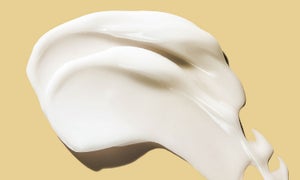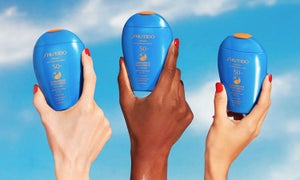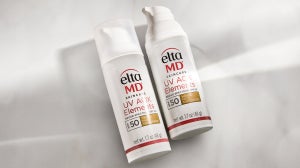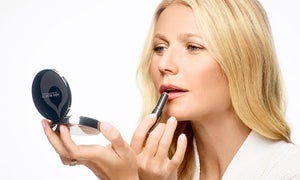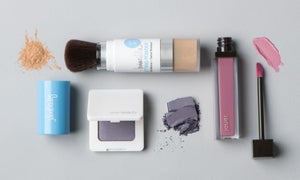
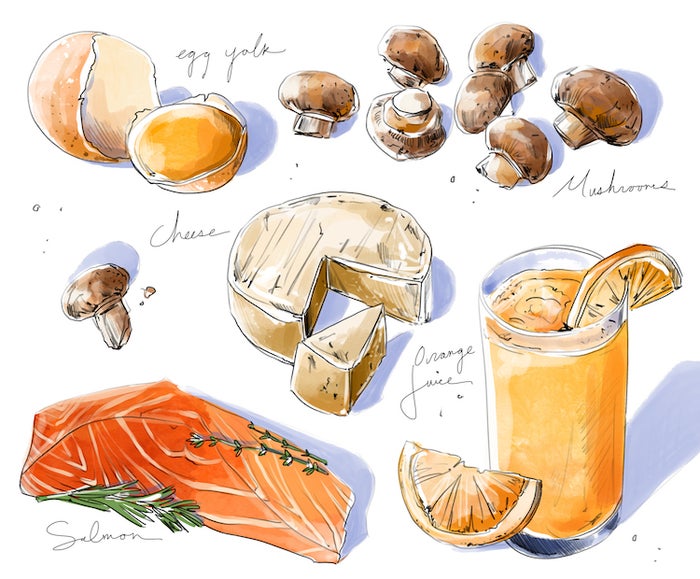
I think it’s fair to say most of us know we need vitamin D. After all, we don’t call spending some time in the sun “getting a healthy dose of vitamin D” for nothing. Vitamin D (sometimes affectionately known as the “sunshine vitamin”) is one of the essential vitamins—meaning your body needs it in order to work properly.
But how does sunlight actually turn into vitamin D? And why do we need it, exactly?Cue the Experts
Knowing very little beyond the above information (even though I once had a vitamin D deficiency, myself), I reached out to four medical experts to help better explain this vitamin, its functions and some of the risks associated with not getting enough of it. Read on for advice from board-certified dermatologist Alan M. Dattner, MD; Annie Grochocinski, RD, LDN, CNSC at the University of Chicago Medicine; June Hatfield MS, RD, CNSC, LD at Children’s Hospital Los Angeles; and Kathleen Meehan MS, RD, LDN, a registered dietitian nutritionist. (You can read more about each of them at the bottom of this post.)What does vitamin D do for the body?
While many of its functions are internal, vitamin D also plays a role in skin health and wellness—especially when it comes to aging skin. “Vitamin D helps protect against oxidative damage of the skin,” says Dr. Dattner. It does this by protecting the skin from premature aging—especially in relation to sun exposure. This is why you might see vitamin D used in the topical treatment of psoriasis, says Hatfield. “[It] also regulates the activity of cathelicidin, an antimicrobial protein that promotes wound healing and tissue repair and may modulate the inflammatory responses in the skin.”
Vitamin D plays a vital role in helping the body absorb and maintain a healthy amount of calcium and phosphorus—in order to keep our teeth and bones healthy and strong. Without enough vitamin D, says Hatfield, your body would only be able to absorb and utilize somewhere between 10–15% of dietary calcium and around 60% of phosphorus.
Meehan adds, “Vitamin D helps control cell growth and may reduce inflammation. Preliminary studies in mice have determined that vitamin D may help protect skin against UV rays, but it’s still too early to know whether that applies to humans as well. It’s exciting, but right now more research is needed to determine exactly what role vitamin D plays in skin health.”
How do we actually get vitamin D from the sun?
Many of us know vitamin D comes from the sun, but what does that really mean? Meehan clarifies: “Technically, you don’t absorb vitamin D from the sun. Your skin is able to synthesize the vitamin based on a number of factors, including the season and the time of day when sun exposure occurs."Dr. Dattner adds to this, explaining that when sunlight hits your skin, it undergoes a transformation process in the liver, followed by the kidney—until it becomes the active form of vitamin D called 25(OH)D or 25-hydroxy vitamin D. This active form is what doctors will typically test for when checking your vitamin D levels. Once in its active form, vitamin D will make its way back to the skin and other important parts of your body to carry out its functions.What happens if you don’t get enough vitamin D?
If you’re not getting enough vitamin D in your system each day, you might be at risk for a deficiency. A deficiency can also be the result of not being able to properly absorb vitamins. If left untreated, a vitamin D deficiency can lead to more serious conditions like osteoporosis or cancer.
Those who are most at risk, says Grochocinski, include:- Breastfed infants
- Older adults (65+)
- People with dark skin (having more melanin can make it harder to get vitamin D through the sun)
- Those with limited exposure to sunlight
- People with certain medical conditions that could affect their ability to absorb vitamins and nutrients
- Those who have undergone gastric bypass surgery
Generally speaking, most people won't ever have to worry about their vitamin D intake. As long as you're spending regular time in the sunshine (wearing SPF protection, of course!), including vitamin D in your diet and don't have any significant risk factors, you shouldn't have an issue. However, if you're noticing any of the symptoms listed below or think you're at risk, definitely check in with your doctor.
What are some of the signs of vitamin D deficiency?
Because vitamin D plays a major role in bone health, “weak bones or frequent fractures may indicate a vitamin D deficiency,” says Meehan. “Symptoms can be subtle, so mention bone pain and muscle weakness to your doctor." In fact, vitamin D deficiency often goes unnoticed.Hatfieldadds, “Signs and symptoms of a vitamin D insufficiency typically won’t be evident or obvious until a person’s vitamin D level/status becomes severe, if at all."
Often, diagnoses happen after adults visit their doctors with complaints of bone pain, muscle aches or general feelings of tiredness and fatigue. Other signs can seem completely unrelated, notes Dr. Dattner. These might include “More frequent infections” and “autoimmune disorders of the skin and elsewhere, sometimes appearing as allergies.” He adds that even acne could be a sign of a deficiency. Because these symptoms can be attributed to many different conditions, a deficiency may not even cross your mind until you're told you have one.
What should you do if you think you have a deficiency?
If you think you might have a vitamin D deficiency (maybe you don’t spend much time outdoors or you’re part of one of the higher risk groups), it’s important to talk to your doctor. Hatfield explains that “checking a 25OH vitamin D blood level is the best, fastest and cheapest option to determine your vitamin D status and can help determine supplement method and dosing. Pending lab results, if an insufficiency or a deficiency is identified, over the counter supplementation may be sufficient or high dose supplements (ex: 50,000 IU/week for 6 weeks) may be prescribed by your physician.”
What else should we know about vitamin D supplements?
However, it’s important to remember that not everyone actually needs to supplement their diet with vitamin D. “Keep in mind that high dose supplements can be toxic if they aren’t necessary,” Meehan notes. There can really be too much of a good thing. Taking supplements you don’t need can lead to vitamin D toxicity, which may cause symptoms like vomiting and kidney problems. Be sure to seek advice from your doctor before starting any vitamin or supplement routine.
For those who aren’t getting enough vitamin D through natural sources, “taking a supplement is an effective way to get the vitamin D your body needs,” says Grochocinski. “It’s also a good way to get an adequate amount of vitamin D if you’re worried about exposing your skin to the sun.”What are some of the best food sources of vitamin D?
Unlike, say, vitamin C—which is abundant in fruits and veggies—vitamin D isn’t a huge part of the average person’s diet. “Vitamin D is found naturally in only a few foods and most foods that do contain vitamin D only have small amounts, so it’s almost impossible to get what your body needs just from food,” explains Grochocinski.
While you can’t rely on food alone to fulfill your vitamin D needs, it’s still important to include vitamin D in your diet when possible. The best sources include fatty fish (salmon, especially), egg yolks, shiitake mushrooms and fortified foods such as milk or orange juice. “Vitamin D aside, most of these foods are also a good source of protein, Omega-3 fatty acids and calcium and should be consumed for these benefits as well,” says Hatfield.
References:- Board-certified dermatologist Alan M. Dattner, MD integrates nutrition, applied kinesiology and holistic medicine into his dermatology practice in New York.
- Annie Grochocinski, RD, LDN, CNSC is a liver transplant dietician at the University of Chicago Medicine as well as a registered dietician at Rise Labs, Inc.
- June Hatfield MS, RD, CNSC, LD is a Clinical Dietitian II at Children's Hospital Los Angeles with a special interest in the research and education of vitamin D.
- Kathleen Meehan MS, RD, LDN is a registered dietitian nutritionist for a corporate wellness company as well as Rise, a nutrition application aimed to help clients meet their goals with daily help from an RD.

Kaitlin Willow is Dermstore's Community Manager. She lives and breathes words—reading as many books as possible and writing her own novel, too. Kaitlin also has a sliiiight obsession with her dog, Benny. Learn more at kaitlinrwillow.com.
